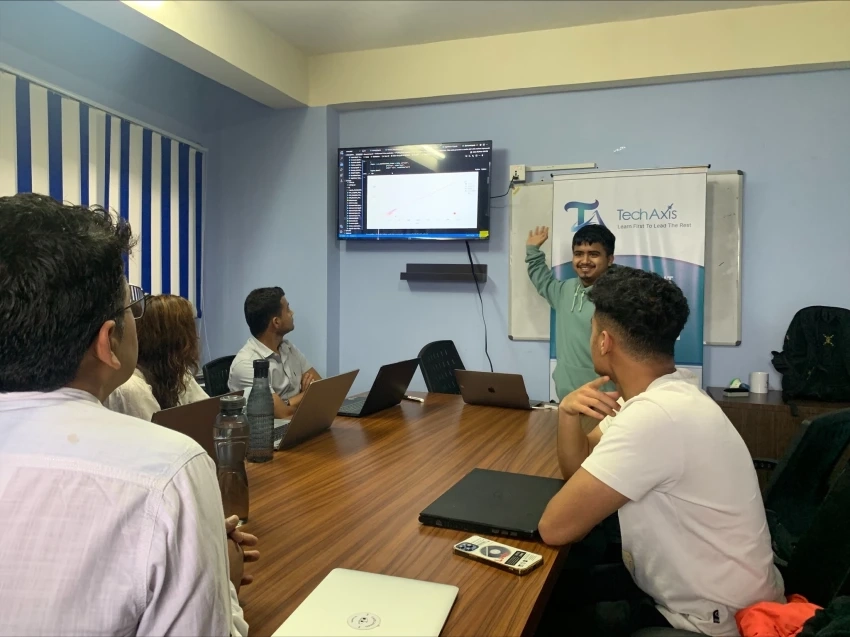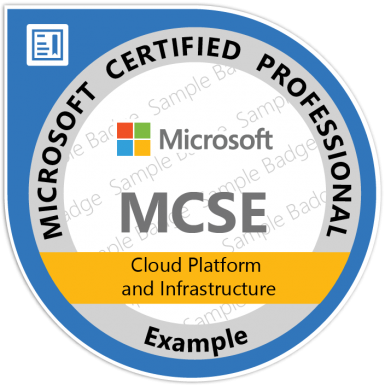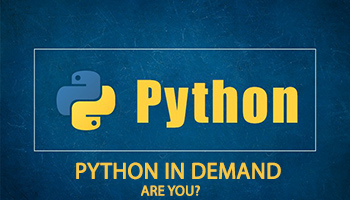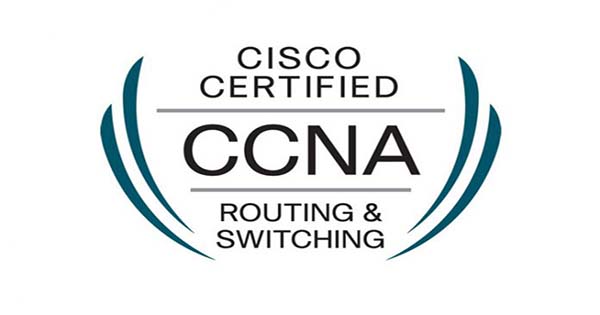How TechAxis Prepare Students for Job Ready Digital marketing course in Nepal
At TechAxis, we prepare students for real-world digital marketing jobs by focusing on learning,execution, responsibility, and industry-level thinking. Most digital marketing courses teach tools, but real jobs demand problem-solving, reporting, and decision-making. Our training approach is designed around how agencies, companies, and clients actually work. Students don’t just learn digital marketing concepts or tools, they practice them in real scenarios.
Many students complete digital marketing courses but still feel unprepared for real jobs. The reason is simple: a real world digital marketing job requires execution, decision-making, and accountability, not just theoretical knowledge. This blog explains how we prepare students to confidently handle real digital marketing responsibilities. You’ll understand what skills employers expect, how those skills are trained, ,how practical experience is built during training and how events like digital marketing workshops can help you set your skills. If you’re worried about whether a course will actually make you job-ready, this guide answers that clearly.

What Real-World Digital Marketing Jobs Actually Demand
Real-world digital marketing jobs demand the ability to plan campaigns, execute tasks independently, analyze data, gather market knowledge, have effective client communication and result based performance. Employers expect marketers to understand customer intent, business goals, and metrics not just tools. Job readiness means being able to take responsibility for outcomes, communicate insights, and adapt to changing scenarios.
Job Demand Digital Marketing Skills in 2026
- Complete tasks independently, meet deadlines, troubleshoot issues.
- Scheduling campaigns, implementing website updates, managing ad campaigns.
- Data Analysis -
- Interpret metrics, track KPIs, make evidence-based decisions.
- Analyzing website traffic, keywords ranking, ad performance, and campaign ROI.
- Strategic & Marketing Knowledge-
- Understand market trends, customer behavior, and business goals.
- Designing targeted campaigns aligned with business objectives.
- Client & Team Communication - Present ideas, progress, and insights clearly to manager, client.
- Reporting campaign results, collaborating with team members, presenting recommendations.
- Result-Oriented Mindset -
- Focus on measurable outcomes, take responsibility for success/failure.
- Optimizing campaigns for conversions, engagement, and budget business impact.
- Adaptability & Learning
- Adjust to changing trends, tools, or feedback.
- Updating strategies mid-project based on analytics or client requirements.
Why Traditional Digital Marketing Training in Nepal Often Fails
Many courses focus heavily on tools like Ahref, Semrush, Keywords Planner, Ad Manager and theory while ignoring execution and decision-making. Students learn what buttons to click but not why they are clicking them. Without real scenarios, mistakes, and data analysis, learners struggle when faced with real job responsibilities.
Common Gaps:
- Over-reliance on slides & tutorials rather than a real problem based approach.
- No exposure to real websites or businesses
- No reporting or performance analysis
- No practical evidence for results
- Our Skill-First, Industry-Aligned Training Philosophy
Our training philosophy is built around one core belief: skills matter more than certificates. The digital and tech industry evolves rapidly, and employers look for professionals who can apply knowledge in real-world situations, not just those who have theoretical understanding.
We prioritize skill development over tool memorization. Tools change, platforms evolve, but marketing thinking remains constant and evergreen. Students first learn strategy, audience understanding, and decision-making before using tools. This prepares them to work confidently across different companies, industries, and platforms.
Core Skills We Build:
Marketing logic & funnel thinking : We help learners understand how marketing actually works in Social Media to Website from attracting the right audience to converting them into customers.
Audience intent analysis : Learners are trained to identify what users are really looking for at different stages, also we use different tools like semrush for identifying user intent. This includes understanding search intent, user behavior, and pain points so marketing messages, content, and campaigns match audience needs.
Performance evaluation : We teach how to measure what’s working on your marketing strategy and what’s not. Students learn to analyze key metrics[Keywords Ranking, Traffic Source,Data Collection], interpret data, and make informed decisions to improve campaigns, rather than relying on guesswork.
Problem-solving mindset: Instead of following fixed formulas, learners develop the ability to think critically. They learn how to diagnose problems, test solutions, adapt strategies, and handle real-world marketing challenges confidently.
Best Platforms For Digital Marketing Training in Nepal
Some of the best options for digital marketing training include reputed IT training institutes, private colleges offering short-term certification programs, and internationally recognized online platforms like Coursera, Udemy, and LinkedIn Learning. Many training centers provide courses covering SEO, social media marketing, Google Ads, content marketing, and analytics, along with practical projects and certification. When choosing a program, it’s important to look for updated curriculum, hands-on practice, mentorship support, and placement or internship assistance to ensure you gain job-ready skills rather than just theoretical knowledge
Learning Through Live Websites and Real Scenarios
At TechAxis, learning goes far beyond theory. Students are trained using live websites, real tools, and actual business scenarios so they understand how digital marketing works in the real world—not just in textbooks.
Learners work directly on active websites, where they analyze site structure, content, traffic, and user behavior. This includes hands-on experience with SEO audits, keyword research, on-page optimization, technical SEO checks, content optimization, and performance tracking. Instead of simulated data, students work with real analytics, real rankings, and real challenges.
Students work on live websites and realistic business scenarios instead of dummy data. This includes keyword research for real niches, content optimization on active pages, campaign planning, and performance tracking. Hands-on exposure to real-world challenges builds confidence and prepares students for both physical and online digital marketing training programs with placement support.
Digital Marketing Training with Placement Assistance
Our Online Digital Marketing Training with Placement Assistance is designed to help you become job-ready with practical, real-world experience not just theory.
Whether you’re a student, job seeker, entrepreneur, freelancer, or working professional, this program gives you the tools and confidence to start a career in digital marketing.
Practical Exposure Includes:
- Live SEO audits
- Content performance optimization
- Campaign planning exercises
- Real analytics data interpretation
- Teaching SEO, Content, Ads, and Analytics as One System
Digital marketing works as an ecosystem, not isolated channels. We teach how SEO, content marketing, paid ads, and analytics support each other. Students learn how traffic is generated, converted, and measured across channels—exactly how it works in real companies and agencies.
- Integrated Learning Covers:
- SEO Training for long-term growth :
- Content for authority and conversion
- Paid ads for immediate results
- Analytics for decision-making
- Real-World Projects That Mirror Industry Work
Projects are designed to reflect real job responsibilities, not classroom exercises. Students create reports, analyze performance, identify problems, and propose improvements. This prepares them for interviews and real tasks they will face in agencies or companies.
Project Examples:
- Create SEO audit & optimization report
- Content Plan for Restaurant Business
- Campaign Ad performance Review
- Conversion optimization suggestions
- Teaching Reporting, Communication, and Tracking
In real jobs, results must be explained clearly to managers or clients. We train students to communicate performance using data, visuals, and insights. Reporting and tracking their performance are emphasized so students can justify decisions and improvements professionally.
Focus Areas for Reporting and Tracking:
- Google Analytics & Search Console Reporting: Learn to track traffic, user behavior, search performance, and technical health using real industry tools.
- KPI Tracking and Interpretation: Understand which metrics truly matter, how to measure progress, and how to turn data into actionable insights.
- Client-Style Explanation Skills: Develop the ability to explain performance clearly and confidently to clients and stakeholders in a professional manner.
- Mentorship From Industry-Experienced Trainers : Students are mentored by trainers with real industry experience, not just academic knowledge. Trainers share real challenges, mistakes, and strategies from actual projects. This builds practical understanding and confidence that books and videos alone cannot provide.
- Industry project experience: Students work on real industry projects that reflect actual business requirements.
- Practical decision-making insights : Instead of blindly targeting keywords, students learn to decide whether to focus on high-intent keywords, content optimization, or technical fixes based on data and business goals.
- Real case discussions : Students learn through real success and failure cases from the industry, including algorithm updates, campaign marketing results.
- Career guidance from professionals : Students get advice on choosing between SEO, performance marketing, content, freelancing, or agency roles—and how to prepare resumes, portfolios, and interviews accordingly
- Building Career Readiness Beyond Technical Skills : Job readiness includes confidence, communication, and clarity—not just technical skills. We guide students through interview preparation, portfolio building, and understanding workplace expectations. Support continues beyond course completion to help students transition smoothly into jobs or freelancing.
TechAxis Career Support for Students Includes:
- Interview preparation for Job
- Portfolio building guidance
- Career path clarity and freelancing tips
- Industry expectations briefings
Who Is This Training Approach Best For?
This approach is ideal for students, career switchers, and professionals who want long-term careers in digital marketing. It suits learners who value practical experience, skill-building, and real outcomes over shortcuts or quick certifications.
How We Measure Student Progress and Readiness
Progress is measured through practical execution, understanding, and improvement not just attendance or exams. Students are evaluated on their ability to analyze problems, practical execution, implement solutions, and explain results.
Sharad Experience : My experience with the TechAxis project has not only strengthened my technical and analytical capabilities but also instilled a disciplined, results-oriented mindset. The combination of practical task execution, data-driven decision-making, continuous growth, and confident implementation has been instrumental in my ability to contribute meaningfully to the project’s success
Evaluation Criteria: Practical task completion : We measure how effectively students complete assigned hands-on tasks. It evaluates whether they can apply theoretical knowledge in real-world scenarios. For example, in digital marketing training, this could include creating ad campaigns, performing keyword research, optimizing a webpage, setting up analytics, or designing social media content.
Data interpretation ability : This assesses how well students understand and analyze data. In digital marketing, data interpretation includes reading Google Analytics reports, evaluating ad performance metrics (CTR, CPC, ROAS), analyzing keyword rankings, and making decisions based on performance insights.
Improvement over time : It looks at how students develop their skills from beginner level to a more confident and capable stage. Improvement may include better campaign structuring, clearer reporting, improved SEO strategies, stronger content creation, or more strategic thinking.
Confidence in execution : This measures how confidently students perform tasks and present their work. Confidence is shown when students can independently set up campaigns, explain strategies, defend their decisions with logic, communicate results clearly, and handle real-world challenges without hesitation.
How to Choose a Digital Marketing Course for Beginners
When choosing a digital marketing course as a beginner, it’s important to look for a program that covers all core areas like SEO, social media marketing, Google Ads, content marketing, and analytics, while also providing hands-on practical training with real projects. A beginner-friendly course should include tool-based learning, certification, mentor support, and ideally internship or placement assistance if you’re planning to build a career in the field. Always check student reviews, course flexibility, and overall value for money to ensure you’re investing in a program that builds real, job-ready skills rather than just theoretical knowledge.
- Comprehensive curriculum (SEO, social media, Google Ads, content, analytics)
- Practical hands-on projects and assignments
- Training on industry tools (Google Analytics, Ads Manager, etc.)
- Beginner-friendly teaching approach
- Certification after completion
- Mentor or instructor support
- Internship or placement assistance (if career-focused)
- Flexible schedule (online/live/recorded options)
- Positive student reviews and testimonials
- Good value for money
Affordable Digital Marketing Certification Programs Available Online
Affordable digital marketing certification programs are available online through platforms that offer flexible, beginner-friendly, and budget-conscious courses covering SEO, social media marketing, Google Ads, content marketing, and analytics. Many provide free or low-cost certificates that help strengthen your resume and practical skills.
Popular affordable options include:
- Google Digital Garage (Free)
- HubSpot Academy (Free)
- Google Analytics Academy (Free)
- SEMrush Academy (Free)
- Coursera
- Udemy (Low-cost courses)
- LinkedIn Learning
Real-world digital marketing jobs require more than theoretical knowledge. They demand confidence, accountability, and hands-on experience. Our training approach is designed to prepare students for exactly that by combining real projects, industry mentorship, integrated learning, and career support. We don’t just teach digital marketing; we prepare professionals who are ready to work from day one.











